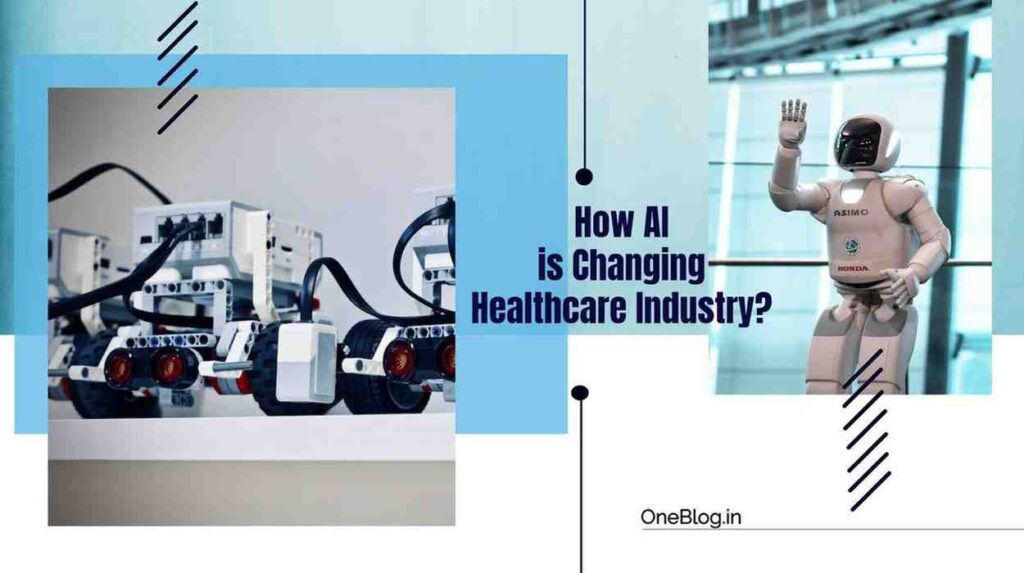Artificial Intelligence (AI) has emerged as a transformative technology in various industries, and one of its most promising applications is in healthcare. AI-powered systems and algorithms are revolutionizing the way medical professionals diagnose, treat, and manage diseases, leading to improved patient outcomes and more efficient healthcare delivery. In this blog, I will discuss how artificial intelligence is changing healthcare industry.
Let us dive in.
How Artificial Intelligence is Changing Healthcare Sector?
Let us find out how artificial intelligence is changing healthcare sector.
One of the key areas where AI is making significant strides is in medical imaging. Radiology, for instance, has been greatly enhanced by AI algorithms that can analyze and interpret medical images with high accuracy. These algorithms can detect abnormalities, such as tumors or fractures, in X-rays, MRIs, and CT scans, assisting radiologists in their diagnoses. By reducing human error and increasing efficiency, AI is helping to expedite the diagnosis process and ensure early detection of diseases.
Another field within healthcare that benefits from AI is drug discovery and development. Traditional methods of discovering new drugs are time-consuming and expensive, often taking years to bring a new drug to market. AI can expedite this process by analyzing vast amounts of data and identifying potential drug candidates with higher precision. Machine learning models can sift through massive datasets, including genetic information and medical records, to identify patterns and potential targets for drug development. This approach not only accelerates the discovery process but also increases the success rate of new drug candidates.
Also, read: Impact of Scent and Memory Association in Personal Experiences
AI also plays a crucial role in personalized medicine, tailoring treatments to individual patients based on their unique characteristics. By analyzing a patient’s genetic profile, medical history, and other relevant data, AI algorithms can predict treatment responses and recommend personalized therapies. This approach can improve treatment outcomes, minimize adverse effects, and optimize healthcare resources.

Additionally, AI is helping to improve patient care and clinical decision-making. Chatbot applications powered by natural language processing (NLP) algorithms can interact with patients, answer their questions, and provide preliminary medical advice. This technology enables patients to access healthcare information conveniently and alleviates the burden on healthcare providers by addressing routine inquiries. AI-based decision support systems assist doctors by analyzing patient data, medical literature, and treatment guidelines to provide evidence-based recommendations for diagnosis and treatment plans.
Despite its potential, AI in healthcare does raise ethical and privacy concerns. Safeguarding patient data and ensuring the transparency and fairness of AI algorithms are crucial considerations. Regulatory frameworks and standards need to be in place to address these issues and ensure that AI technologies are used responsibly and ethically.
So, in order to find out how artificial intelligence is changing healthcare industry, we have to look at the impact it has been making. For the time being AI is revolutionizing healthcare by enhancing medical imaging, drug discovery, personalized medicine, and clinical decision-making. These advancements have the potential to improve patient outcomes, increase efficiency, and transform the way healthcare is delivered. As AI continues to evolve, it is crucial to strike a balance between innovation and ethical considerations to fully realize its benefits in healthcare while addressing potential risks.
Applications Of Artificial Intelligence in the Healthcare Industry
Artificial intelligence (AI) is rapidly transforming the healthcare industry, with applications in a wide range of areas, including:
Diagnosis: AI-powered tools can help doctors and other healthcare providers to diagnose diseases more accurately and quickly. For example, AI-powered image analysis tools can help radiologists to detect cancer in medical images, such as X-rays and mammograms.
Treatment: AI can also be used to develop new treatments for diseases. For example, AI-powered drug discovery tools can help researchers to identify new potential treatments for diseases.
Prevention: AI can also be used to prevent diseases. For example, AI-powered risk assessment tools can help people to identify their risk of developing certain diseases, such as heart disease or stroke.
Personalized medicine: AI can be used to deliver personalized medicine, which is a type of healthcare that is tailored to the individual needs of each patient. For example, AI-powered decision support tools can help doctors to choose the best treatment for each patient.
Healthcare administration: AI can also be used to improve healthcare administration, such as by automating tasks such as scheduling appointments and processing insurance claims.
AI is still in its early stages of development in healthcare, but it has the potential to revolutionize the way healthcare is delivered. By automating tasks, improving accuracy, and providing personalized care, AI can help to improve the quality and efficiency of healthcare, and ultimately improve the health of patients.
Examples of Companies Using AI in the Healthcare Industry
Here are some specific examples of how AI is being used in healthcare today:
IBM Watson Oncology: IBM Watson Oncology is an AI-powered tool that helps oncologists to make more informed treatment decisions for cancer patients. Watson Oncology analyzes a patient’s tumor data and medical history and then generates a personalized treatment plan that takes into account the patient’s individual characteristics and preferences.
Google DeepMind Health: Google DeepMind Health is an AI-powered company that is developing tools to improve the diagnosis and treatment of diseases. DeepMind Health has developed an AI-powered tool that can help doctors to identify diabetic retinopathy, a serious eye condition that can lead to blindness.
Enlitic: Enlitic is an AI-powered company that is developing tools to improve the diagnosis of cancer. Enlitic’s AI-powered tool can help radiologists to identify cancer in medical images, such as mammograms, with greater accuracy than human radiologists.
These are just a few examples of how artificial intelligence is changing healthcare today. As AI technology continues to develop, we can expect to see even more innovative and transformative applications of AI in healthcare in the years to come.
Follow our OneBlog Google News publication for more such informative blogs in the health sector. Support us by following our social media pages: the links to which are given at the bottom of this page.





